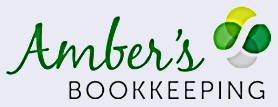
The mediums that help us spend our money can add much organization to our financial world. The ability to track what we spend, see what we’ve spent, and rely on that information to be correct is very valuable and useful. I rarely carry cash and never use cash in my day to day spending. When you and I spend money with bills and coins, there is no way to track what we’ve spent unless we write it down. I don’t know about you but I have better things to do than to write down on a notebook that I buy or open an app on my phone to input something I bought with cash. I’d rather let my banks track my spending and sync up to their systems. They do a fine job on their own and I don’t need to make it more complicated than it needs to be.
First off, be knowledgeable. Figure out which credit cards are open and which ones you use. If you have no clue, run a credit report and find out. Start from scratch and make sure you close accounts and cards you aren’t using or have ignored over the last few years that have gone dormant. Just because you have several open doesn’t mean they have to remain open. Keep a few open that you use regularly and cancel the rest. Simplifying this list and number of cards will make it easier for you to track your finances and spending.
After getting rid of all the accounts you don’t need or use, start to track the spending on the cards you have in your wallet. Note: don’t open new credit cards when they’re offered to you in checkout lines. This complicates things and defeats the purpose of simplifying your life financially. I say, less is more, when it comes to credit card and banking accounts. The more accounts you have open the more you have to track, be responsible for, and keep tabs on.
Tracking spending is super simple when you have all your passwords and usernames set up for each financial account you have. That’s the hardest, most annoying task. Once you have them all organized and signed up you can track your spending through computer software or an app on your phone. Software and apps need those usernames and passwords to sync up to. They are very safe and secure and pretty user friendly. Choose whichever one you’re comfortable with. I love Quicken for personal finances and QuickBooks for business finances. But Mint and You Need a Budget are also popular.
Tagging and categorizing your purchases and income matters. So once you pick the software stick to it and use it regularly. I try to tag our expense two times a month. Get into a routine so you can benefit from the tracked data. Once it’s been tracking after about three months you can see and analyze trends and adjust. For me, this is the best part of tracking your finances inside financial software- it gives you the power of knowing what you’re spending. It doesn’t mean you have to cut your spending. It gives you the freedom to choose what you want to spend money on.
Finally, there’s one organizing habit that allows you to be strategic with your money. Assign certain cards and accounts for unique causes or roles. For example, you can have a savings account for your property taxes so you know the money will always be there twice a year when you get the property tax bills. Use one checking account for automated, obvious bills such as mortgage, rent, utilities, phone or cable bills.















